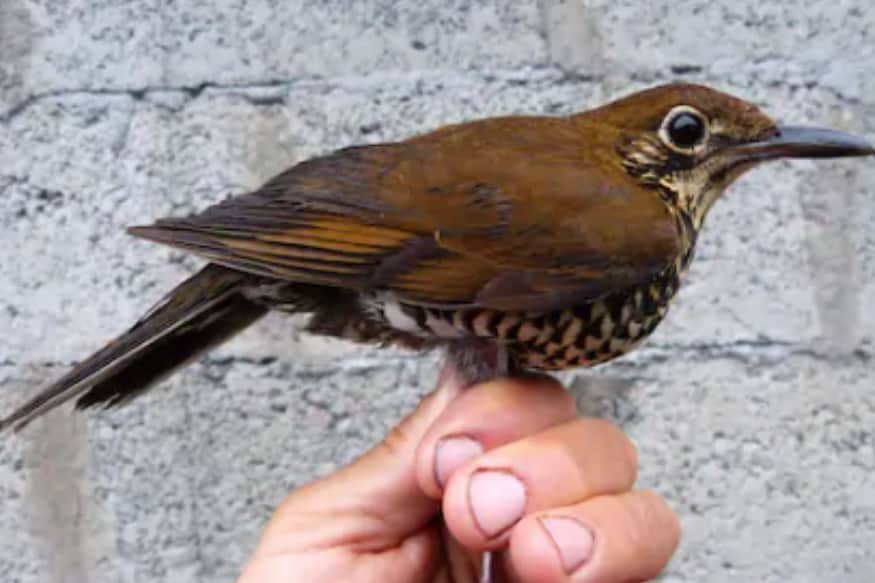The researchers trained the AI models to recognise images of individual birds in wild populations of great tits and sociable weavers and a captive population of zebra finches, some of the most commonly studied birds in behavioural ecology. After training, the AI models were tested with images of the individuals they had not seen before and had an accuracy of over 90 per cent for the wild species and 87 per cent for the captive zebra finches.
According to the researchers, for AI models to be able to accurately identify individuals they need to be trained with thousands of labelled images. Companies like Facebook are able to do this for human recognition because they have access to millions of pictures of different people that are voluntarily tagged by users. But, acquiring such labelled photographs of animals is difficult and has created a bottleneck in research.
The researchers were able to overcome this challenge by building feeders with camera traps and sensors. Most birds in the study populations carried a passive integrated transponder (PIT) tag, similar to the microchips implanted in pet cats and dogs. Antennae on the bird feeders were able to read the identity of the bird from these tags and trigger the cameras.
AI methods like the one shown in this study use a type of deep learning known as convolutional neural networks, these are optimal for solving image classification problems.
In ecology, these methods have previously been used to identify animals at a species levels and individual primates, pigs and elephants. However, until now it hasn’t been explored in smaller animals like birds. This model is able to identify birds from new pictures as long as the birds in those pictures are previously known to the models,” said the study authors wroteScientists Develop Artificial Intelligence to Identify Individual Birds So Humans Don’t Have to
In the study, published in the journal Methods in Ecology and Evolution, the research team describes the process of using AI to individually identify birds. This involves collecting thousands of labelled images of birds and then using this data to train and test AI models.
Scientists Develop Artificial Intelligence to Identify Individual Birds So Humans Don’t Have to
Researchers have demonstrated that artificial intelligence (AI) can be used to train computers to recognise individual birds, a task that humans are unable to do.
“We show that computers can consistently recognise dozens of individual birds, even though we cannot ourselves tell these individuals apart,” said study lead author Andre Ferreira from the Center for Functional and Evolutionary Ecology (CEFE) in France.
“Our study provides the means of overcoming one of the greatest limitations in the study of wild birds – reliably recognising individuals,” Ferreira added.
In the study, published in the journal Methods in Ecology and Evolution, the research team describes the process of using AI to individually identify birds. This involves collecting thousands of labelled images of birds and then using this data to train and test AI models.
The researchers trained the AI models to recognise images of individual birds in wild populations of great tits and sociable weavers and a captive population of zebra finches, some of the most commonly studied birds in behavioural ecology. After training, the AI models were tested with images of the individuals they had not seen before and had an accuracy of over 90 per cent for the wild species and 87 per cent for the captive zebra finches.
According to the researchers, for AI models to be able to accurately identify individuals they need to be trained with thousands of labelled images. Companies like Facebook are able to do this for human recognition because they have access to millions of pictures of different people that are voluntarily tagged by users. But, acquiring such labelled photographs of animals is difficult and has created a bottleneck in research.
The researchers were able to overcome this challenge by building feeders with camera traps and sensors. Most birds in the study populations carried a passive integrated transponder (PIT) tag, similar to the microchips implanted in pet cats and dogs. Antennae on the bird feeders were able to read the identity of the bird from these tags and trigger the cameras.
AI methods like the one shown in this study use a type of deep learning known as convolutional neural networks, these are optimal for solving image classification problems.
In ecology, these methods have previously been used to identify animals at a species levels and individual primates, pigs and elephants. However, until now it hasn’t been explored in smaller animals like birds. This model is able to identify birds from new pictures as long as the birds in those pictures are previously known to the models,” said the study authors wrote.




